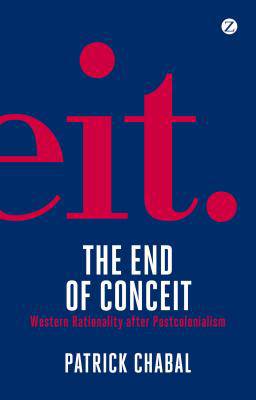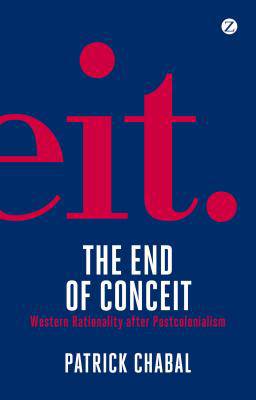
Bedankt voor het vertrouwen het afgelopen jaar! Om jou te bedanken bieden we GRATIS verzending (in België) aan op alles gedurende de hele maand januari.
- Afhalen na 1 uur in een winkel met voorraad
- In januari gratis thuislevering in België
- Ruim aanbod met 7 miljoen producten
Bedankt voor het vertrouwen het afgelopen jaar! Om jou te bedanken bieden we GRATIS verzending (in België) aan op alles gedurende de hele maand januari.
- Afhalen na 1 uur in een winkel met voorraad
- In januari gratis thuislevering in België
- Ruim aanbod met 7 miljoen producten
Zoeken
€ 195,45
+ 390 punten
Omschrijving
In this radical new book, Patrick Chabal reveals how the future of the West is now inextricably linked to that of the non-West. The rise of the economic power of China and other Asian countries as well as urgent environmental issues now force the West to think in new ways about how to best face the future. This is an issue which runs far deeper than present debates on the decline of the West might suggest. The book argues that the postcolonial challenge, from regions such as Asia, Africa, Latin America and the Middle East, as well as the influence of citizens of non-Western origins now living in the West have combined to expose the limits of Western rationality - that is, the theories and concepts we currently use to understand and act upon the world. Discussing such provocative questions as 'Is it a good idea to build mosques in Europe?' and 'Is Beckham the new black icon?', Chabal explores the growing failure of Western social thought to explain many of our most pressing domestic social and economic issues. He also discusses contentious issues in international relations, such as the spread of democracy and the protection of human rights. He concludes that, ultimately, what the West needs is not more and better theory but an entirely new way of thinking - one that will put an end to its current deep-seated conceit.
Specificaties
Betrokkenen
- Auteur(s):
- Uitgeverij:
Inhoud
- Aantal bladzijden:
- 384
- Taal:
- Engels
Eigenschappen
- Productcode (EAN):
- 9781848135581
- Verschijningsdatum:
- 1/08/2012
- Uitvoering:
- Hardcover
- Formaat:
- Genaaid
- Afmetingen:
- 140 mm x 216 mm
- Gewicht:
- 589 g

Alleen bij Standaard Boekhandel
+ 390 punten op je klantenkaart van Standaard Boekhandel
Beoordelingen
We publiceren alleen reviews die voldoen aan de voorwaarden voor reviews. Bekijk onze voorwaarden voor reviews.









